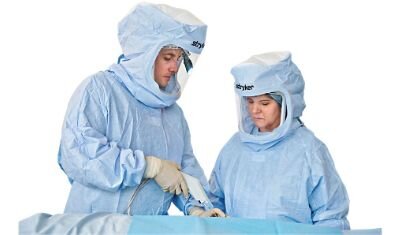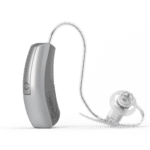We take the healthcare, wellbeing and needs of our patients very seriously. That’s why we are monitoring the outbreak very closely. We are keeping constant contact with the CDC, Local health administrations and local healthcare facilities to ensure the highest form of compliance during this outbreak.
We are actively monitoring incoming patients and staff for symptoms and survey traveling habits to eliminate any chance of spread at our offices. Our staff is also continuously disinfecting all areas of the office to insure a clean and safe office environment. – For more information please feel free to contact your local office. Find your local office’s contact information here.
Table of Contents
ToggleHearing Healthcare and COVID-19 Corona Virus. - Know the risks, stay prepared with advice from Doctor Chad Ruffin, MD
Unless people practice aggressive social distancing, COVID-19 will be the biggest epidemic in the U.S. since polio. The U.S. has declared a state of emergency in an attempt to decrease the spread and burden of COVID-19.
Our one page summary contains all you need to know about COVID-19. It is jargon-free and low-vision accessible. It includes resources in ASL. It covers the following topics:
What COVID-19 is & the risks to you and the healthcare system
Symptoms & what to do if you are sick
Mental health in an pandemic (coming soon)
Information for healthcare providers
Why those with hearing loss are at much higher risk from COVID-19
Several issues associated with hearing loss places these patients at a higher risk for COVID-19. First, communication issues in healthcare settings and often lower levels of health literacy can increase the risk for medication and treatment errors.
The loneliness, anxiety and depression from social isolation weaken the immune system, which can increase risk of catching COVID-19. Those with cardiovascular disease such as high blood pressure and heart disease are more at risk at dying from COVID-19. These diseases are more prevalent in those with hearing loss.
Lastly, those with hearing loss have less income and they are more at risk for financial harm during the pandemic. You need to plan ahead for your safety net.
Plan ahead for healthcare
BEFORE GOING TO THE HOSPITAL
What do you do if you get sick or need to go to the hospital? First, have a plan in place before you get sick. In an epidemic, the hospital may seem to be a chaotic place. You may be in an temporary isolation tent or placed in a hallway. Being prepared ahead of time is key.
Call your doctor’s office to navigate their phone menu. See if their office will give you a direct line to a nurse. Many offices now have apps to bypass the telephone and contact their office directly.
AT THE HOSPITAL
If you must go to the hospital, know that hearing loss can increase the risk of poor treatment. It is essential to bring a friend or loved one to act as your advocate. You also need to bring all your hearing equipment with you. Keep your hearing equipment in your ears to prevent loss. In the best of times, hospitals are prone to medication and treatment errors. This will worsen during a busy pandemic. It is essential that you and your advocate be aware of medication and treatment plans. See this hospital survival guide for tips before going to the hospital. It includes tips such as bringing a list of your medications and creating a living will so family members understand your wishes. This healthcare access toolkit provides information for healthcare providers and for individuals with disabilities about accessible healthcare.
PLANNING TO GO HOME
Plan for your discharge from the hospital while you are in the hospital. This is essential for being discharged as quickly as possible to avoid hospital-transmitted infections. Contact the social worker on your hospital ward to get this process started. Check in twice a day—the squeaky wheel gets the grease.
Preparing for communication needs

Hoods used by orthopedic surgeons
SELF-ADVOCACY
See this video for how to introduce yourself as a person with a disability.
Resources for knowing your rights and how to establish a communication access plan in the hospital.
Consider printing these useful signs to place in your hospital room. See if your hospital has assistive technology or a hospital kit for those with hearing loss.
COMMUNICATING IN THE HOSPITAL
Know your communication rights in the hospital. Healthcare providers will be wearing masks, and you will likely be in respiratory isolation. This can make communication challenging. Some ideas:
Use a personal whiteboard or a boogie board.
Clear face masks and orthopedic surgery hoods (see figure) are types of clear surgical masks. Clear face masks must be purchased. For ortho hoods, ask for the charge nurse of your ward or hospital nursing supervisor to contact the operating room staff or an orthopedic surgeon to borrow a hood.
Apps such as Google LiveTranscribe and Microsoft Translator can be backup communication aids that provide captions for speech. Wired or wireless lavalier microphones can increase accuracy. Wired mics are easier and less prone to being lost in the hospital.
You have the right to a live ASL interpreter and if not available, quality video interpreting services.
Getting a Cochlear Implant During Pandemic COVID-19
COCHLEAR IMPLANTATION IS GENERALLY “ELECTIVE”
In general cochlear implant surgery is elective or non-urgent surgery. Given the seriousness of COVID-19, you should strongly consider rescheduling your surgery. It may be some time (e.g. a year) before you may get your surgery. Some patients may be concerned about longer durations of deafness since this has been shown to worsen cochlear implant outcomes. Fortunately, the short period of time to wait for COVID-19 to pass should not have an appreciable effect on cochlear implant outcome. This is because “long duration of deafness” is defined as longer than 10 years since hearing aids were beneficial.
WHEN IS COCHLEAR IMPLANTATION URGENT?
In two instances cochlear implantation is not elective and surgery must proceed urgently. For patients with meningitis, bony growth (ossification) start to quickly block the inside of the cochlea. The inside of the cochlea must be free of bone so that the electrode can be successfully placed. The second instance is congenital hearing loss. Children born with hearing loss who are from hearing families who do not use American Sign Language are at very high risk for language delays. Cochlear implantation as early as possible has been shown to improve language outcomes. The latest research shows that even a month can make a difference in final outcomes.

Dr. Chad Ruffin is an ear, nose, and throat doctor who specializes in hearing restoration and ear surgery. He is one of the first people born with severe hearing loss to become a surgeon using cochlear implants. He performs cochlear implant and hearing restoration surgery and teaches his patients how to live to the fullest with hearing loss. In addition to treating patients in the clinic, he also researches and develops technology for hearing loss. Follow the latest updates via Twitter and Facebook.
Reference: https://www.chadruffinmd.com/blog/2020/3/15/covid-19-and-hearing-loss


